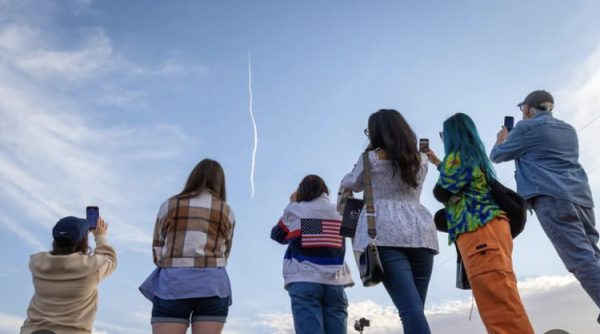President’s Day: The Most Complex Holiday
President’s Day commemorates the birthdays of all presidents but is significant for different reasons to the states.
The third Monday of February, when President’s Day is observed, is close to George Washington’s birthday- February 22nd. Every year after his death, it became a day of remembrance before becoming a federal holiday in the 1870s. Federal officials have referred to the holiday as “Washington’s Birthday” since 1885 when it expanded beyond the District of Columbia.
The majority of states honor both Washington and Lincoln, who was born on February 12th. Their birthdays are celebrated on the same day because of the Uniform Holiday Bill of 1968 that merged both of their birthdays so that they would be celebrated on the third Monday of February. The holiday was moved to Monday and became colloquially known as Presidents’ Day in 1971. The bill, now known as the Uniform Monday Holiday Act, created more three-day weekends with the working class in mind.
In Alabama, the holiday is known as George Washington/Thomas Jefferson Day and is the only state to call the holiday as such. Though Jefferson is from Virginia, and his birthday is on April 13th, he is remembered for his substantial involvement in the Civil War. Alabama is the sole state to honor both presidents together. Like all other former confederate states, Lincoln is not recognized. They have an unspoken tradition that they will not honor Lincoln as he cost the Confederacy victory in the Civil War.
The other Southern states do not mention Jefferson. South Carolina calls the day Washington’s Birthday/ Presidents Day, which signifies the ambiguity of the holiday. In tune with the original purpose of the celebration, Mississippi, Georgia, and Virginia celebrate George Washington Day. Tennessee and Texas have taken a more general stance on Presidents Day. Arkansas honors civil rights activist Daisy Gaston Bates alongside the presidents. She supported the desegregation of Little Rock High School. Most perplexing of all, nine states do not celebrate any resemblance of the holiday.
Now recognized as Presidents Day, the holiday’s ambiguity allows each state to establish its traditions.
Your donation will help support The Lambert Post, Lambert High Schools student-run newspaper! Your contribution will allow us to purchase equipment and cover website hosting costs.







